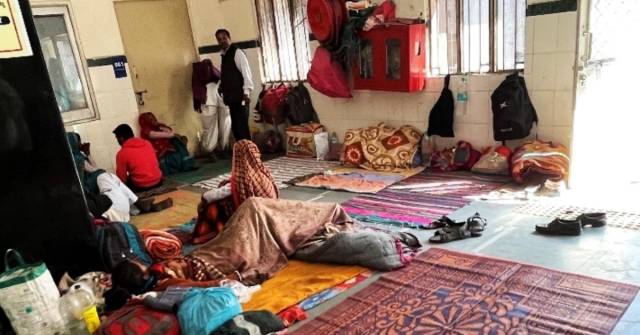You are here
Supporting the Introduction of a Lifesaving Vaccine in India through Meningitis Surveillance
When India began a pilot rollout of the pneumococcal conjugate vaccine (PCV) in 2017, this presented an exciting opportunity to help protect millions of children from pneumococcal disease. The bacterium Streptococcus pneumoniae (also known as pneumococcus) can cause minor health conditions such as ear or sinus infections, but it can also bring on severe and sometimes fatal illnesses such as pneumonia, meningitis and other invasive infections. Young children are especially vulnerable. According to the World Health Organization, pneumococcus kills over 300,000 children under the age of five worldwide every year, and more than one-fifth of these deaths occur in India.
The PCV roll out in India began as a pilot project introducing the vaccine in states with the highest rate of life-threatening pneumonia among children. The goal was to expand the vaccine’s use to the entire country. While planning was underway for a national rollout, efforts were made to strengthen surveillance to track pneumococcal infections.
In 2018, the CDC Foundation partnered with the Centers for Disease Control and Prevention (CDC) and the Bill & Melinda Gates Foundation (BMGF) to provide technical support to the Indian Council of Medical Research (ICMR) to develop and strengthen the country’s pneumococcal meningitis surveillance system. During the COVID-19 pandemic, much of this technical assistance was delivered virtually. I was excited to join the US-based team for an in-person meeting with ICMR program leads in Delhi, India in December 2022, to see some of the important progress this program has made.
There are over 100 distinct strains of pneumococcus. To ensure that vaccines remain effective, it is crucial to know which of these strains are causing disease in the region and how they are changing. Our ongoing collaboration has focused on supporting ICMR in developing systems to monitor the number of cases of pneumococcal meningitis and the evolution of strains, or serotypes, of pneumococcus over time. The surveillance network now includes 28 clinical recruitment sites across the country, where children under the age of two with suspected cases of meningitis are recruited and enrolled. These sites send cerebrospinal fluid samples to four regional reference laboratories (RRL) for testing. Samples positive for pneumococcus are then referred to two larger laboratories to determine the specific strain.
While in Delhi, we had an opportunity to visit two recruitment sites and one regional reference laboratory to observe the enrollment process and how samples are collected and transferred for testing. We were also able to visit the clinic where these life-saving vaccines are administered. At the regional reference laboratory, technicians showed us how samples are examined for the presence of pneumococcus before being transferred to another lab to determine the strain. It was impressive to witness these systems in action and to see just how much ICMR has been able to accomplish, even in the face of the COVID-19 pandemic.
Thanks to the recent introduction of Pneumosil, a low-cost PCV manufactured locally, India has been able to accelerate the introduction of the vaccine throughout the country. PCV is now part of India’s routine immunization program for infants in all states, free of cost. The meningitis surveillance system developed through our partnership with ICMR has been a critical part of this expansion, and the CDC Foundation and our partners at CDC and BMGF will continue providing technical assistance to ICMR. We are proud to be a part of India’s monumental efforts to protect children from vaccine-preventable illnesses and save lives.


